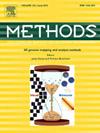MGDM:使用多项扩散模型的分子生成。
IF 4.3
3区 生物学
Q1 BIOCHEMICAL RESEARCH METHODS
引用次数: 0
摘要
分子结构的准确分析和有效分子的快速生成仍然是De Novo药物设计的重大挑战。在这项研究中,我们提出了分子生成的多项生成扩散模型(MGDM)。该模型利用多项扩散框架来处理离散数据,重点是学习数据集中固有的多项分布。在生成过程中,模型逐步对分子进行降噪,从均匀的噪声分布过渡到最终生成有效的分子结构。最初,我们无条件地生成分子来扩展化合物库。在下一阶段,我们将专注于生成具有特定属性的分子,以评估模型的条件生成能力。为此,我们实现了一个无分类器的引导策略,该策略指导扩散模型的任务,而不需要训练单独的分类器模型。为了验证我们的框架的有效性,我们使用分子集(MOSES)数据集进行了实验。结果表明,与几种最先进的方法相比,MGDM产生有效的分子,同时在新颖性和多样性方面取得了优越或相当的性能。本文章由计算机程序翻译,如有差异,请以英文原文为准。
MGDM: Molecular generation using a multinomial diffusion model
Accurate analysis of molecular structures and the rapid generation of valid molecules remain significant challenges in De Novo drug design. In this study, we propose the Multinomial Generated Diffusion Model (MGDM) for molecular generation. This model leverages a multinomial diffusion framework to process discrete data, with a focus on learning the multinomial distribution inherent in the dataset. During the generation process, the model progressively denoises molecules, transitioning from a uniform noise distribution to ultimately produce valid molecular structures. Initially, we generate molecules unconditionally to expand the compound library. In the next phase, we focus on generating molecules with specific properties to assess the model’s capacity for conditional generation. For this, we implement a classifier-free guidance strategy, which directs the diffusion model’s task without the need for training separate classifier models. To validate the effectiveness of our framework, we conducted experiments using the Molecular Sets (MOSES) dataset. The results demonstrate that, compared to several state-of-the-art methods, MGDM generates valid molecules while achieving superior or comparable performance in terms of novelty and diversity.
求助全文
通过发布文献求助,成功后即可免费获取论文全文。
去求助
来源期刊

Methods
生物-生化研究方法
CiteScore
9.80
自引率
2.10%
发文量
222
审稿时长
11.3 weeks
期刊介绍:
Methods focuses on rapidly developing techniques in the experimental biological and medical sciences.
Each topical issue, organized by a guest editor who is an expert in the area covered, consists solely of invited quality articles by specialist authors, many of them reviews. Issues are devoted to specific technical approaches with emphasis on clear detailed descriptions of protocols that allow them to be reproduced easily. The background information provided enables researchers to understand the principles underlying the methods; other helpful sections include comparisons of alternative methods giving the advantages and disadvantages of particular methods, guidance on avoiding potential pitfalls, and suggestions for troubleshooting.
 求助内容:
求助内容: 应助结果提醒方式:
应助结果提醒方式:


